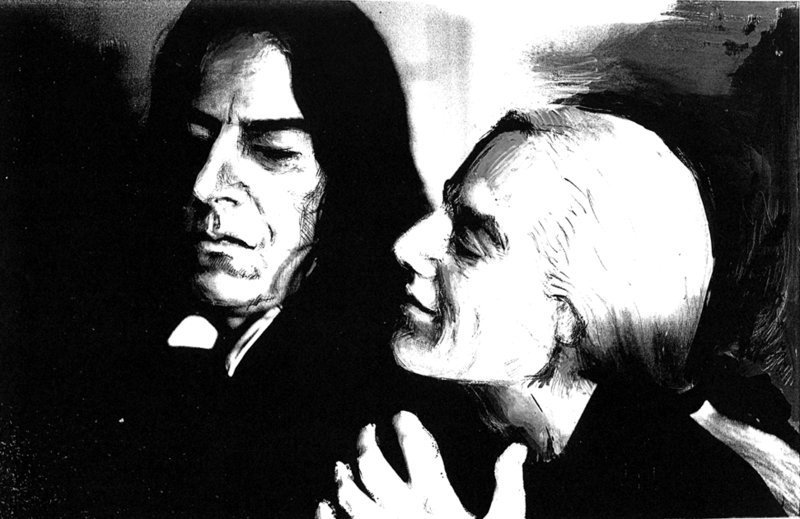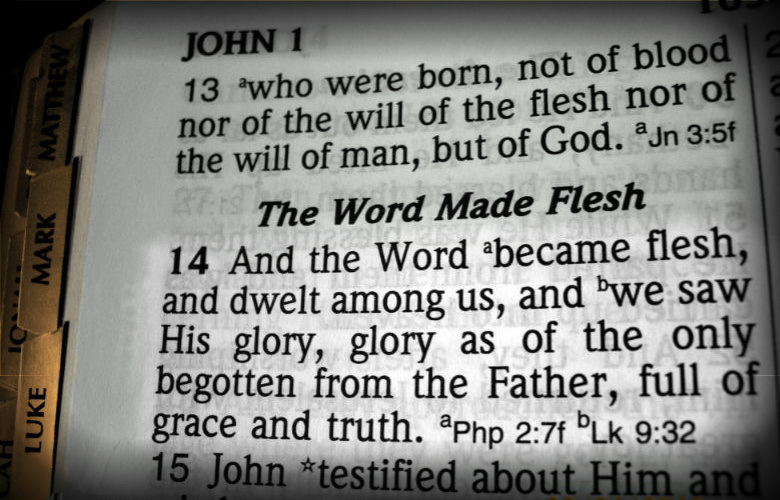 Grace
Grace Entries in Grace (51)
Unlimited Grace, Limited Me
 Thursday, April 9, 2015 at 10:52AM
Thursday, April 9, 2015 at 10:52AM  How big is grace? Grace is scattered like stars on a cloudless night. Grace is fathomless as the ocean depths. Grace is the air in my lungs; my small breaths could not possibly exhaust the bounty of grace in the sky. Grace inexhaustible, grace forever fresh, grace boundless and free. And yet hidden in the abundance of grace lies a danger to my soul.
How big is grace? Grace is scattered like stars on a cloudless night. Grace is fathomless as the ocean depths. Grace is the air in my lungs; my small breaths could not possibly exhaust the bounty of grace in the sky. Grace inexhaustible, grace forever fresh, grace boundless and free. And yet hidden in the abundance of grace lies a danger to my soul.
The problem is not God’s supply of grace. Infinite God; infinite grace. The problem is me: tiny, finite, limited, breakable me. Here’s the contrast, and also the danger: God is infinite but the human psyche is not.
Two examples: author Philip Yancey tells a first-hand story of his friend who was thinking about an extra-marital affair. “What I want to know,” asked the friend “is if I go ahead and do this: will God forgive me?” Yancey, stunned, finally hears the Spirit whisper, and answers: “The question is not whether God will forgive, but whether you will want his forgiveness.” The dreadful results played out. The man had the affair; his marriage dissolved; and he walked away from his identity as a follower of Jesus. Dallas Willard teaches the same lesson when he reminds us that God’s love, grace, and mercy are without limit, but the human heart will only bend so far before it breaks.
Like a man who wins a hundred million in the lottery and wastes it all in carelessness and foolish desires, the wealth of grace reveals the hidden desires of our hearts. What if we love sin more than grace? Martin Luther famously challenged us, “Be a sinner and sin boldly, but believe and rejoice in Christ even more boldly” but he presumed the sinner’s heart was still turned toward the God. What if we sin not in boldness, but in complete disregard for the love of God and his work of restoration? What if sin is the true desire of our soul?
Set aside the question of Heaven or Hell after we die: what about Heaven or Hell while we live? The fabric of everyday life is alive with the grace of God. If we wait until we’ve sinned to call upon the grace of God, we’ve squandered the greater part of grace. True: grace forgives, but it also guides. Grace restores, but it also guards. Grace repairs, but it also instructs us to deny ungodly ways and teaches us the how-to of life: how to life sensible, upright, and godly lives in this present age.
The scripture teaches we are saved by grace. The good news is we can experience salvation here-and-now as well as there-and-then. The Kingdom of Heaven glides on wings of grace. The Kingdom brings righteousness, peace, and joy—and best of all the gracious Holy Spirit leads us to these three in everyday life. The Kingdom is never attained; it is received. How will we receive the grace of the Kingdom today?
 Why not receive Students of Jesus in your inbox? Subscribe to our email newsletter and never miss a post.
Why not receive Students of Jesus in your inbox? Subscribe to our email newsletter and never miss a post.
Learning From Our Sin
 Tuesday, March 31, 2015 at 08:48AM
Tuesday, March 31, 2015 at 08:48AM  Here’s the pattern: I choose sin, which is bad enough. Worse still—afterward—the voice in my head tries to drag me deeper still. This is the voice of the Adversary: he chants enticement before my sin and shouts condemnation after. His is a voice skilled in subtle influence followed by paralyzing guilt. It’s a voice filled with accusation. He is a liar and the father of lies; lies are his native tongue.
Here’s the pattern: I choose sin, which is bad enough. Worse still—afterward—the voice in my head tries to drag me deeper still. This is the voice of the Adversary: he chants enticement before my sin and shouts condemnation after. His is a voice skilled in subtle influence followed by paralyzing guilt. It’s a voice filled with accusation. He is a liar and the father of lies; lies are his native tongue.
But even in the wreck of my God-awful choices there is another voice. After my sin comes another still, small voice. It sounds like a storytelling prophet trying to open the eyes of a privileged king. “Return to me,” it whispers, “and I will return to you.” It is the voice of Jesus asking Peter, “Do you love me?”
Sin always brings death, but Jesus is no mere medical examiner doing a post-mortem. He raises the victim to life.
This is the glory of God: he speaks to us even in our sin. The Great Alchemist turns our sin into the stuff of restoration. His message is restoration, and what’s more, he takes our defeat and turns it into the very fabric of instruction. Have you ever learned from your sin? God is not only ready to forgive; he is eager to teach. If we are open to God’s voice, even our sin become grace in his hands. He will show us the path and correct our steps, not by insisting on obedience but by revealing our hearts. Not by counting ours sins against us, but by teaching us a new way to live.
After I choose anger, Jesus wants to reveal its source, and heal the weakness that led to sin. After I choose greed, Jesus wants to reveal my insecurity, and heal the weakness that led to sin. After I choose lust, Jesus wants to reveal my desire, and heal the weakness that led to sin. After I choose judgment, Jesus wants to reveal my pride, and heal the weakness that led to sin.
Jesus is not the kind of person who simply says, “Go, and sin no more.” He also makes his command possible. What he asks, he empowers. He takes us to the source and gives us hope. Resurrection isn’t just for Jesus; it’s for us. It’s not just for the end of days, it’s so we can walk in newness of life. Sin puts us in the tomb; Jesus rolls away the stone—as often as we need.
The Divine Scandal
 Thursday, March 12, 2015 at 09:37AM
Thursday, March 12, 2015 at 09:37AM  Is there anything more irresponsible than grace? It’s the refuge of losers, the hiding place of the harebrained, the only hope at end of the line. How do we learn anything from grace, where we are shielded from the fruit of our ways? How can we grow into responsible adults if we are allowed to avoid the shipwreck of our poor choices?
Is there anything more irresponsible than grace? It’s the refuge of losers, the hiding place of the harebrained, the only hope at end of the line. How do we learn anything from grace, where we are shielded from the fruit of our ways? How can we grow into responsible adults if we are allowed to avoid the shipwreck of our poor choices?
Better to live well grounded in the predictable world of choice and consequence. Consequence is the lever of choice, tilting upon the worldly fulcrum of cause and effect; sowing and reaping are the dependable laws of nature. Karma chants responsibility: “Choose, and eat the fruit of your choice.” How can we mature apart from learning the mathematics of choice and consequence?
To look at grace from the outside is to see someone getting off scot-free. The work of grace is the spoiling of an only child. Grace runs counter to good stewardship. Grace is the foolishness of giving a field hand a full day’s pay for but a few hours work.
Oh, but from the inside—to taste of grace is to drink the water of life. It’s the meal without the tab; the drinks are on the house. Grace is more and better wine even though the guests are tipsy. Grace is calories that somehow don’t count. Karma is the voice of reason; grace is the voice of love.
Reason cautions us: this makes grace even more dangerous: the unscrupulous can figure the con quickly. Grace can be abused, grace can be played the fool, grace can be wasted—but grace doesn’t care. Grace is the divine scandal. Grace is the way of Heaven, where mercy triumphs over judgment: not that judgment is unknown, but rather tried and found wanting.
Simone Weil said there are but two forces capable of moving the human heart: gravity and grace. Gravity, the great force of nature, exerts its unstoppable influence from the outside; grace, the beautiful power of super nature, floats on air.
And here is our dilemma: we want grace for ourselves, but choose Karma for others. Grace seen from the outside is how rouges get off scot-free. Grace seen from the inside is the spring of life. The trick is to see grace from the inside—on behalf of others. Grace is more than a gift; it is the example of Heaven. Grace is the way, the truth, and the life. Grace calls us not only to taste and see, but also to come and follow.
The grand goal of grace is that we would not be mere partakers, but that we would become the servants in its grand banquet. Grace calls us to fill the glass of every thirsty soul.
What God Has Joined . . .
 Thursday, January 22, 2015 at 12:03PM
Thursday, January 22, 2015 at 12:03PM  The Word became flesh and made his dwelling among us. We have seen his glory, the glory of the one and only Son, who came from the Father, full of grace and truth. (John 1:14)
The Word became flesh and made his dwelling among us. We have seen his glory, the glory of the one and only Son, who came from the Father, full of grace and truth. (John 1:14)
Before time began, grace and truth were joined in Jesus Christ. What God has joined, let no man separate—the problem is, we keep trying to do just that.
We somehow believe grace and truth stand in opposition to one another; that truth is hard and cold; that grace is soft and shallow, but somehow not really the truth. We are wrong: grace is no more opposed to truth than Jesus is opposed to the Father.
We talk about finding a balance between grace and truth the same way we talk about balancing calories and exercise, unaware that one fuels the other. Grace loves truth, and truth welcomes grace.
Grace speaks the truth without a hint of judgment, confident that the truth sets us free. Grace is the medium of truth: if you change the medium, and you change the very message itself. Grace offers truth the way a guide offers to show the way. Grace rejoices in the truth.
Truth delights in grace because truth is made full only in grace. Truth is robed in grace—and truth would never show herself indecent. Truth speaks but one language: grace.
There is no glory in truth alone, nor is their glory in grace apart from truth. Together as one, grace and truth are the stuff of glory, and this world has seen to little glory. We saw such glory once, and we tried to tear it apart. But our everlasting good the glory was resurrected. Resurrection is truth. Resurrection is grace. To walk in newness of life is to walk as one with grace and truth.
Untimely, Unlikely Grace
 Tuesday, January 13, 2015 at 09:25AM
Tuesday, January 13, 2015 at 09:25AM  Jesus, fresh from the grave, revealed himself to quite a list of people. In fact, we have the actual list: “ . . . He was raised on the third day according to the Scriptures, and He appeared to Cephas, then to the twelve. After that He appeared to more than five hundred brethren at one time, most of whom remain until now, but some have fallen asleep; then He appeared to James, then to all the apostles; and last of all, as to one untimely born, He appeared to me also.” (1 Corinthians 15) Notice the list-maker puts himself at the end of the parade, as he should. He knew he didn’t belong. A preschooler playing “one of these things is not like the others” would’ve removed Paul from the list in a heartbeat. The Apostle Paul, last of all: one untimely born.
Jesus, fresh from the grave, revealed himself to quite a list of people. In fact, we have the actual list: “ . . . He was raised on the third day according to the Scriptures, and He appeared to Cephas, then to the twelve. After that He appeared to more than five hundred brethren at one time, most of whom remain until now, but some have fallen asleep; then He appeared to James, then to all the apostles; and last of all, as to one untimely born, He appeared to me also.” (1 Corinthians 15) Notice the list-maker puts himself at the end of the parade, as he should. He knew he didn’t belong. A preschooler playing “one of these things is not like the others” would’ve removed Paul from the list in a heartbeat. The Apostle Paul, last of all: one untimely born.
Paul didn’t walk with Jesus on the roads of Galilee or hear the Sermon on the Mount firsthand. Years later, in the most untimely way, Jesus appeared to Paul, roughed him up on the highway, and left him blind in foreign town. Yet when he was healed something more than scales fell from his eyes: he saw God’s grace as both comfort and provocation.
Grace sees things for what they are: Paul understood he was not fit to be called an apostle. He persecuted the church of God. Paul himself points to his violent, murderous heart, but not like one asking for parole—he was a man pardoned--but divine pardon does not change the facts. Paul says simply, “by the grace of God I am what I am, and His grace toward me did not prove vain.” He is strangely content with his past. Grace doesn't whitewash history: it builds on the ugly facts and makes them the foundation for a glory unimagined. The one untimely born became the herald of transformation.
Paul would be the first to tells us, though, that contentment is only half of gracework: “. . . but I labored even more than all of them, yet not I, but the grace of God with me.” The very grace capable of bringing contentment fuels the work of the herald. As plainly as Paul would tell you he is the least of the Apostles, he also looks you in the eye lays claim to being the strongest hand in the field.
Both are grace: “I am what I am” and “I labored even more.” Grace lives between contentment and hard work, entirely at home with either neighbor. The pardon becomes fuel for the fire.

